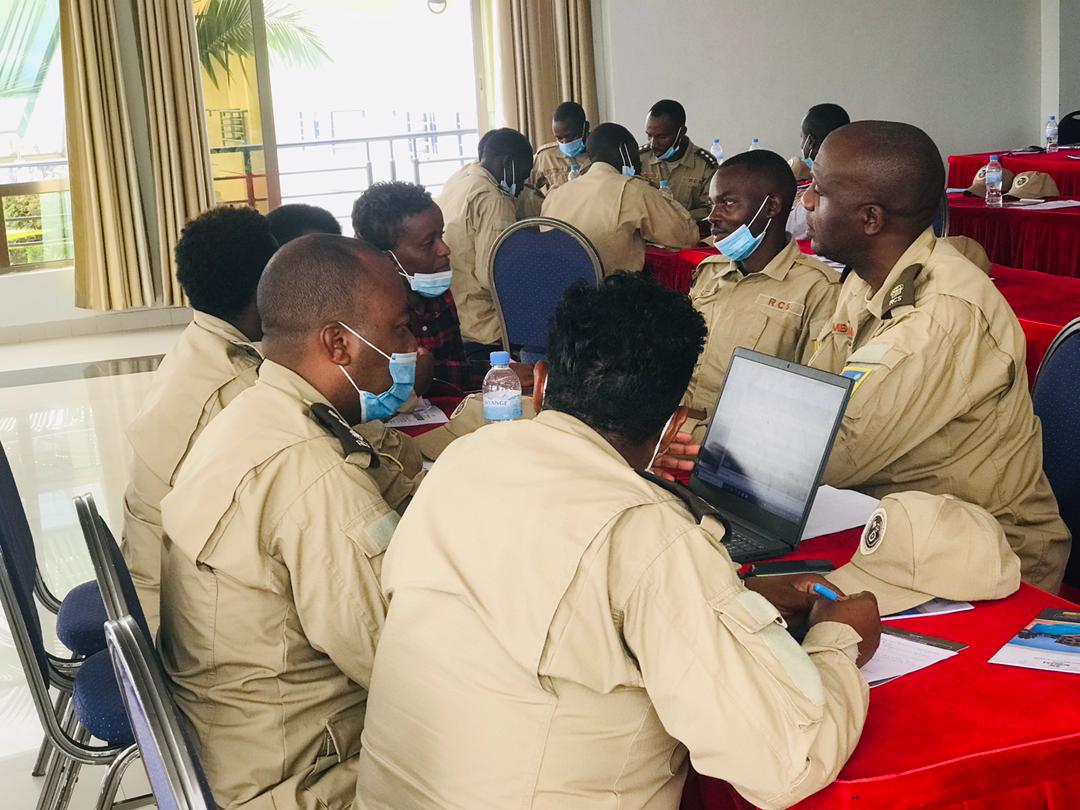Interpeace, DiDe, Prison Fellowship Rwanda and Haguruka in partnership with the Minubumwe, and in close collaboration with RCS, RBC are implementing a ‘’reinforcing community capacity for social cohesion through societal trauma healing program’’ in Musanze, Ngoma, Nyabihu, Nyagatare and Nyamagabe district.
It is a holistic peace building programme that is focused on strengthening psycho-social and economic resilience for sustainable peace among communities. The innovation of this programme is the combination of three different thematic approaches: mental health and psycho-social support, social cohesion, and inclusive livelihoods; as opposed to designing each of these as a stand-alone project/programme, as has been the practice generally in Rwanda.
It is in this program that DIDE RWANDA CONDUCTED a 3 days training on psycho-education for RCS officials.
The overall goal of this psycho-education training is to increase awareness of RCS officials on trauma and the need for healing towards social cohesion among prisoners so they are able to effectively identify and address trauma and conflict triggers among prisoners. It also aims to allow prison officials to better understand the role of the program to support societal healing efforts as well as its intended contribution to improving social cohesion and support current prisoners in the process of family and community reintegration.
Specific objectives
• To increase the understanding of the concept of mental health and wellbeing of the inmates.
• To strengthen RCS officials’ understanding of prisoners’ psychosocial assistance (needs and services)
• To enhance the RCS officials’ understanding of protocols for effective prisoner psychosocial rehabilitation and reintegration.
The obtained skills will bring benefit to inmates with mental disorder and ability to work in the society after they finish their sentence.
The 3 pillars of the training: Mental Health, Social cohesion, and Livelihood was covered by different expert in those field
Teaching those in the training Prof. RUTEMBESA EUGENE showed how different people demonstrate signs of mental disorder and the level of anxiety and depression.
After what happened in Rwanda.
With the aim to allow prison officials to better understand the role of the program to support inmates healing and their preparation to return into the community and live in peace with the society.
Here he explained the importance on the mental health and what a stable mind could bring into the community by teaching all levels of mental disorders.
The RCS officials who participated in the training had a group discussion where they find general mental health problems prisoners have, how they cooperate with their families and their challenges in handling mental situations.
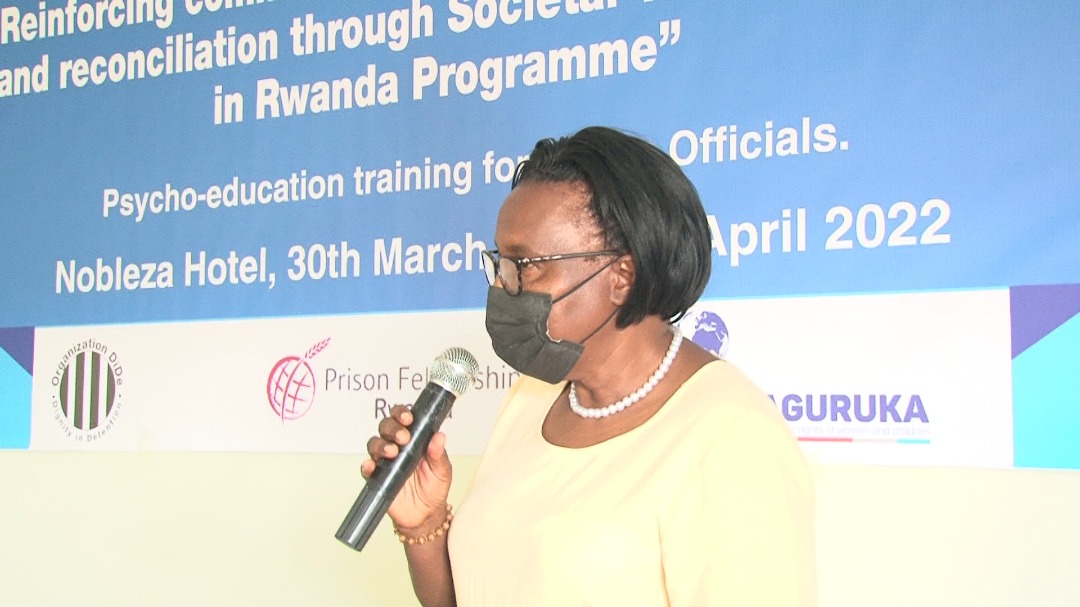
DIDE RWANDA E.D Odette MUKANSORO giving opening remarks
Marking the opening The Executive Director welcomed all the participants and thanks RCS that sent their staff from different prisons around the country.
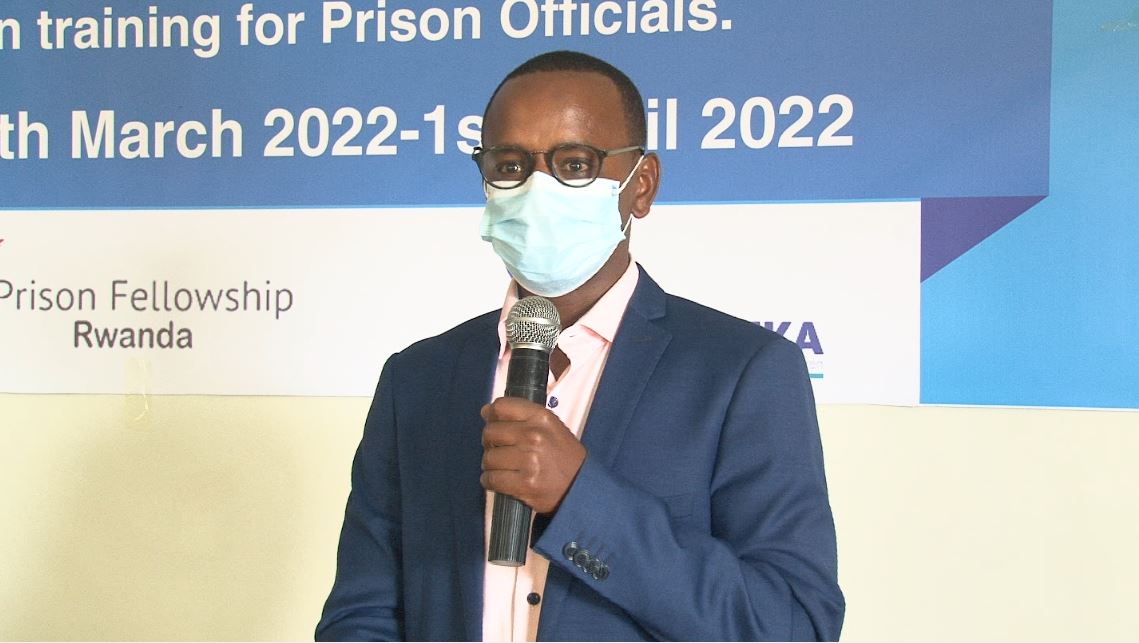
Frank KAYITARE the Regional Representative of InterPeace
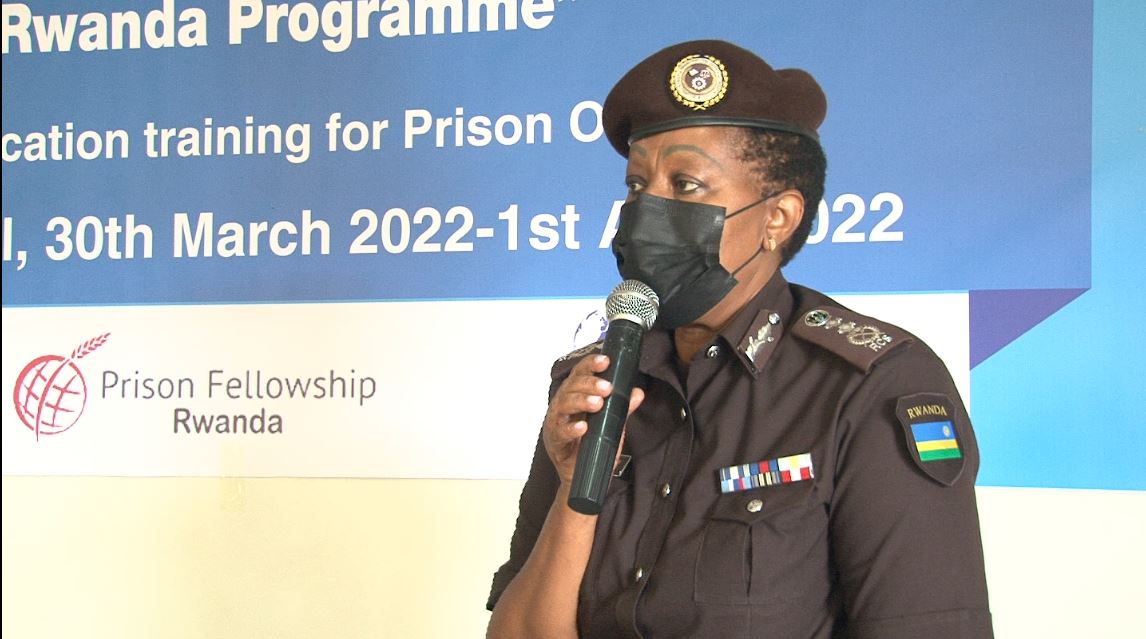
Rose MUHISONI DCG of RCS
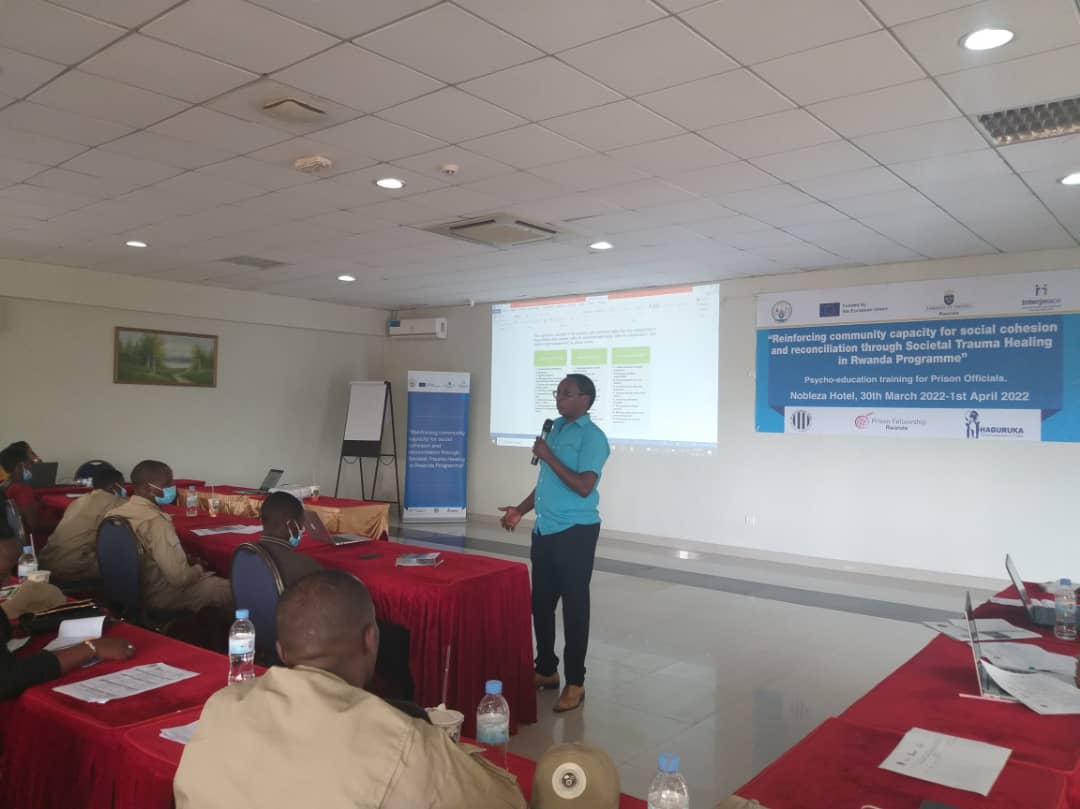
Prof. Eugene RUTEMBESE teaching mental disorders to trainees
With the aim to allow prison officials to better understand the role of the program to support inmates healing and their preparation to return into the community and live in peace with the society.
Here he explained the importance on the mental health and what a stable mind could bring into the community by teaching all levels of mental disorders.
The RCS officials who participated in the training had a group discussion where they find general mental health problems prisoners have, how they cooperate with their families and their challenges in handling mental situations.
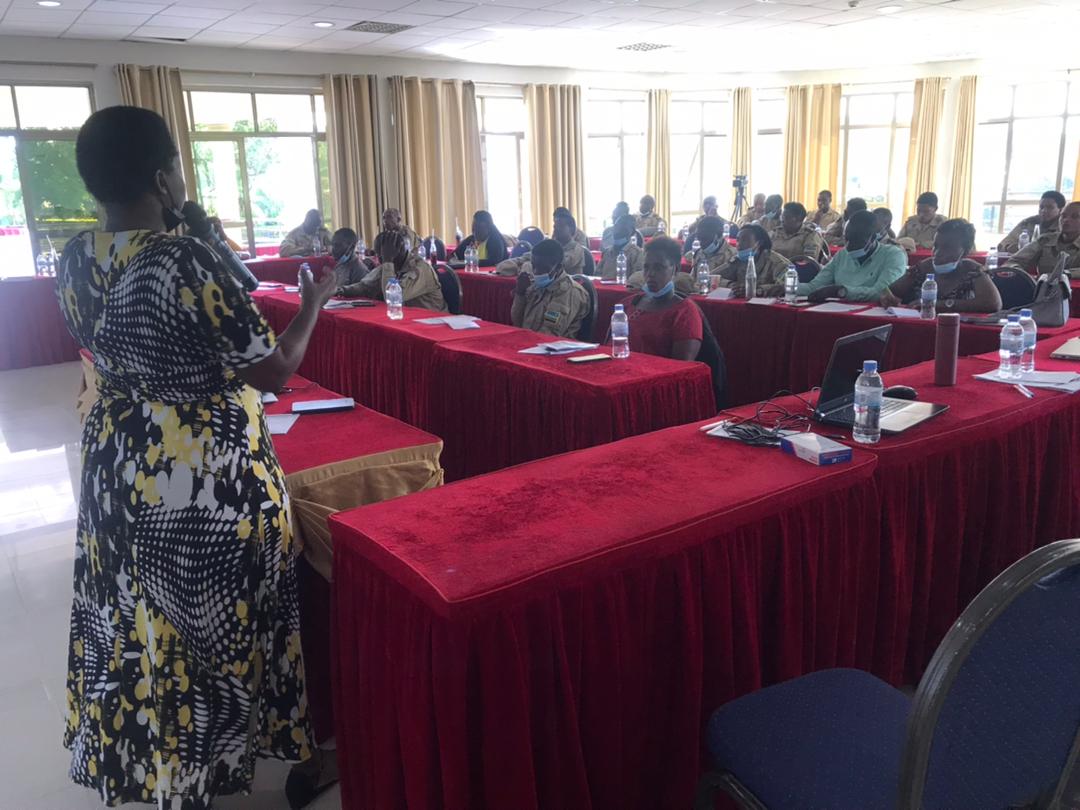
Class of trainees

CLOSING DAY:
Speaking in the name of the training participants officer Patrick of RCS said they are happy for this kind of training, during this period we have learned lessons on mental health and social cohesion, and livelihood that are very necessary for prisoners to be able to live in peace with the society.
Executive Director of DIDERWANDA Odette MUKANSORO thanks the training participants for their time spending 3 day, saying they will continue to provide training like this to tackle different problems the Rwandan society have after the Genocide against Tutsi in 1994, I thank RCS that gave us 32 employees for 3 days from different prisons
These days it is the pilot of the new project with InterPeace and this is the first training of the project and it went to RCS officials, prisoners must be treated with mental health support but they are few staff who follow them, but this don’t stop them from giving the good services.
Speaking in the place of the Regional Representative from Interpeace Mr. Erneste begins by thanking all the participants and DIDE that organized these training, saying that the project has a main focus to use holistic approach to deal with the consequences of the genocide, affecting mental health, social life and development of the country.
